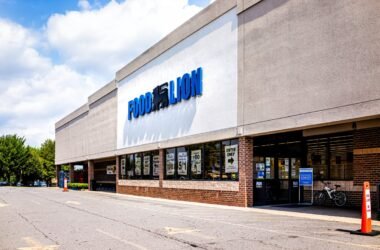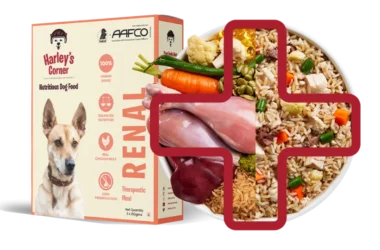Nestled in the scenic Blue Ridge Mountains, Fannin County, GA, is renowned for its thriving agricultural industry. As a cornerstone of the region’s economy, livestock farming plays a pivotal role in sustaining the local community. Many residents and agricultural enthusiasts are curious to know: What is the highest livestock species in Fannin County GA?
This article delves into the heart of Fannin County’s agricultural industry, exploring which livestock species dominate and why. Along the way, we’ll highlight the unique factors that contribute to this agricultural success and provide insights into the region’s farming trends.
Understanding Livestock Farming in Fannin County GA
Geographical and Climatic Influences
Fannin County’s location in the Appalachian foothills creates a moderate climate ideal for farming. The lush pastures, abundant water sources, and well-drained soil make it suitable for raising various livestock species.
Key features of the region:
- Temperature: Mild winters and warm summers create a balanced environment for livestock.
- Topography: Rolling hills and valleys provide natural grazing areas.
- Water Availability: Clean, natural water sources sustain healthy livestock growth.
What Drives Livestock Dominance in Fannin County?
Several factors contribute to the prominence of certain livestock species in the county:
- Economic Viability: Farmers often focus on species with high market demand.
- Sustainability: Species that thrive on local resources are prioritized.
- Community Support: Agricultural cooperatives provide resources and education.
The Highest Livestock Species in Fannin County GA
Based on agricultural data and local reports, cattle emerges as the highest livestock species in Fannin County. The dominance of cattle farming is due to its economic importance, adaptability, and alignment with the county’s natural resources.
Why Cattle Farming is Prevalent
- Economic Impact: Beef and dairy products contribute significantly to the county’s economy.
- Land Utilization: The region’s expansive pastures are well-suited for grazing.
- High Market Demand: Consumers consistently seek high-quality beef and dairy.
- Sustainability: Efficient feed conversion and adaptability to climate fluctuations.
Additional Livestock Species in Fannin County
While cattle lead the numbers, several other livestock species play an essential role in the agricultural landscape:
Poultry
Poultry farming, particularly chickens, ranks second in prominence due to:
- High demand for meat and eggs.
- Short rearing cycles compared to other livestock.
Goats
Goat farming has grown steadily, with many farmers focusing on meat, milk, and fiber production.
Sheep
Although smaller in scale, sheep farming is popular for wool and meat production.
Pigs
Pork production supports local markets, though it remains less prevalent than cattle and poultry.
Economic Contributions of Livestock Farming
Boosting Local Employment
Livestock farming directly supports jobs, from farm laborers to veterinary services.
Supporting Related Industries
Industries such as feed production, equipment manufacturing, and meat processing thrive alongside livestock farming.
Driving Export Opportunities
Fannin County’s high-quality beef and poultry products are in demand regionally and nationally.
Challenges Faced by Livestock Farmers in Fannin County
While livestock farming thrives, local farmers encounter several obstacles:
- Rising Feed Costs: Managing feed expenses remains a critical challenge.
- Climate Fluctuations: Weather extremes can impact livestock health.
- Market Competition: Competing with larger-scale farms poses difficulties.
- Regulatory Pressures: Compliance with environmental and safety standards requires significant effort.
Efforts to Support Livestock Farming
Educational Programs
Local agricultural organizations offer workshops and training on sustainable farming practices.
Community Support
Farmer cooperatives and farmers’ markets provide platforms for sharing resources and selling products.
Technological Advancements
Farmers in Fannin County are adopting technologies such as:
- Automated milking systems.
- Precision feeding to optimize livestock nutrition.
Livestock Farming Sustainability Practices
Farmers in Fannin County employ eco-friendly methods to maintain sustainability, including:
- Rotational grazing to preserve pasture quality.
- Organic farming practices that reduce chemical usage.
- Water conservation techniques like drip irrigation.
The Future of Livestock Farming in Fannin County GA
As demand for locally-sourced and sustainably-raised livestock products increases, Fannin County farmers are poised to innovate and expand their operations. Cattle farming will likely remain dominant, while smaller-scale farming of goats, poultry, and sheep will diversify the agricultural portfolio.
Fascinating Facts About Livestock in Fannin County
- The average cattle farm in Fannin County spans 100–200 acres, accommodating grazing and feed production.
- Dairy production accounts for a significant portion of the county’s agricultural revenue.
- Grass-fed beef is becoming increasingly popular among local consumers.
How to Support Livestock Farming in Fannin County
- Buy Local Products: Support farmers by purchasing meat, eggs, and dairy from local markets.
- Visit Farmers’ Markets: Engage directly with farmers and learn about their practices.
- Promote Agri-Tourism: Encourage visits to local farms to boost awareness and tourism.
- Advocate for Policies: Support initiatives that benefit small-scale farmers.
Conclusion
Livestock farming is the lifeblood of Fannin County, GA, with cattle emerging as the highest livestock species due to its economic impact and adaptability. While challenges persist, the county’s farmers continue to innovate and embrace sustainable practices, ensuring a bright future for agriculture. By supporting local farming initiatives, consumers can contribute to the growth and sustainability of this vital industry.
Also Read: The Ultimate Wantless Godly Rich System Chapter 24: A Thrilling Fantasy Unveiled
FAQs
What is the most common livestock species in Fannin County GA?
Cattle farming leads in Fannin County due to economic viability and alignment with local resources.
Why is cattle farming so prominent in Fannin County?
Cattle thrive in the region’s climate, and beef and dairy products have high market demand.
Are there other livestock species in Fannin County besides cattle?
Yes, poultry, goats, sheep, and pigs also contribute to the county’s agricultural output.
What challenges do livestock farmers in Fannin County face?
Farmers encounter issues like rising feed costs, climate fluctuations, and market competition.
How can I support livestock farming in Fannin County?
Purchasing local products, visiting farmers’ markets, and advocating for farmer-friendly policies can help.
What sustainability practices are used in livestock farming?
Fannin County farmers employ rotational grazing, organic methods, and water conservation techniques.




